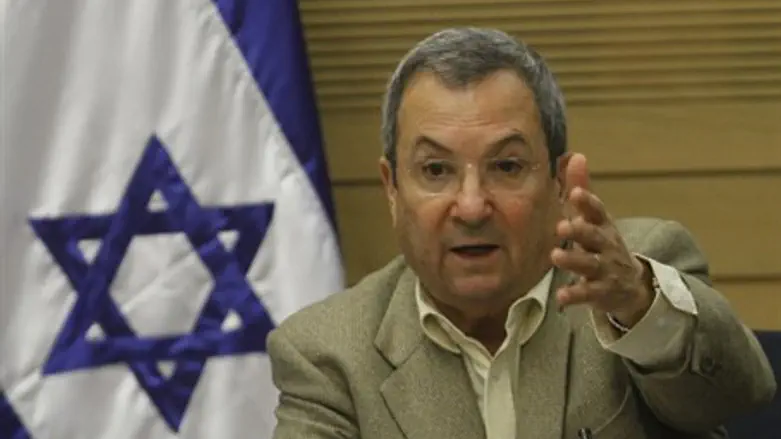
Syrian President Bashar Al-Assad’s fate has been sealed, Defense Minister Ehud Barak said on Wednesday.
“The Assad regime is on a slippery slope, his fate has been sealed and he will fall soon,” Barak said in London, where he met with senior officials in the British government.
“There is an Iranian fear that Assad will fall and the only ones who support Assad today are Iran and Hizbullah,” he added. “The Iranians understand that the fall of Assad would deal a severe blow to the Tehran-Damascus-Hizbullah axis. Post-Assad Syria may deteriorate into chaos and separation into individual provinces. Israel is monitoring the option that Syrian weapons could fall into the hands of Hizbullah.”
Regarding Iran, Barak said, “A nuclear Iran threatens the entire world order and regional order in particular. We are determined to prevent Iran from getting nuclear weapons. The need to deal with Iran's pursuit of nuclear weapons has risks, complexities and meanings, not all of which are predictable.”
However, Barak said, “Dealing with an Iran whose ayatollahs are equipped with nuclear weapons would be infinitely more complicated, more dangerous and more expensive than dealing with it prior to its becoming nuclear.”
He also spoke about the peace process with the Palestinian Authority and said, “Israel and the Palestinians must work to resume negotiations without preconditions and discuss all the core issues. It is in the interest of both parties and we must hurry to do so.”
Barak will return to Israel on Thursday. On Tuesday he revealed in an interview with the Daily Telegraph that Israel almost attacked Iran eight months ago – but that the “moment of truth” was postponed after Iran redirected part of its enriched uranium to civilian uses.
Without that decision, a confrontation with Iran would have almost certainly developed, said Barak.
When asked about future Israeli plans to attack Iran, Barak said simply that “Israel reserves the right to defend itself, by itself. An action against Iran will be much safer than an attack against an Iran that achieves nuclear capability.”
Sanctions and diplomatic pressure have not worked, said Barak, and he warned that as a result, Israel and its allies will have to deal with the decision on whether or not to attack Iran's nuclear facilities “in the coming year.”
As Barak was visiting London, Prime Minister Binyamin Netanyahu visited France, where he met with President Francois Hollande.
During the meeting Hollande said he wanted to see Iran perform "concrete acts" to prove it was not pursuing a nuclear arms drive.
At a press conference with Netanyahu, whose aim during a two-day visit to France is to seek more pressure on Iran, Hollande warned that Paris would back "other sanctions" if Tehran failed to convince on its contested nuclear program.
"This is a threat which cannot be accepted by France," Hollande said.
"We have voted for many sanctions and are ready to vote others as long as necessary," he said, demanding "proof that Iran has abandoned this drive".
Netanyahu hailed the "extremely important position" taken by Hollande.
In an interview with a French magazine on Tuesday, Netanyahu said a military strike on Iran would benefit the Arab world.
“Five minutes after [the strike], contrary to what skeptics say, I think a feeling of relief would spread across the region,” he said, adding, “Iran is not popular in the Arab world, far from it, and some governments in the region, as well as their citizens, have understood that a nuclear armed Iran would be dangerous for them, not just for Israel.”

